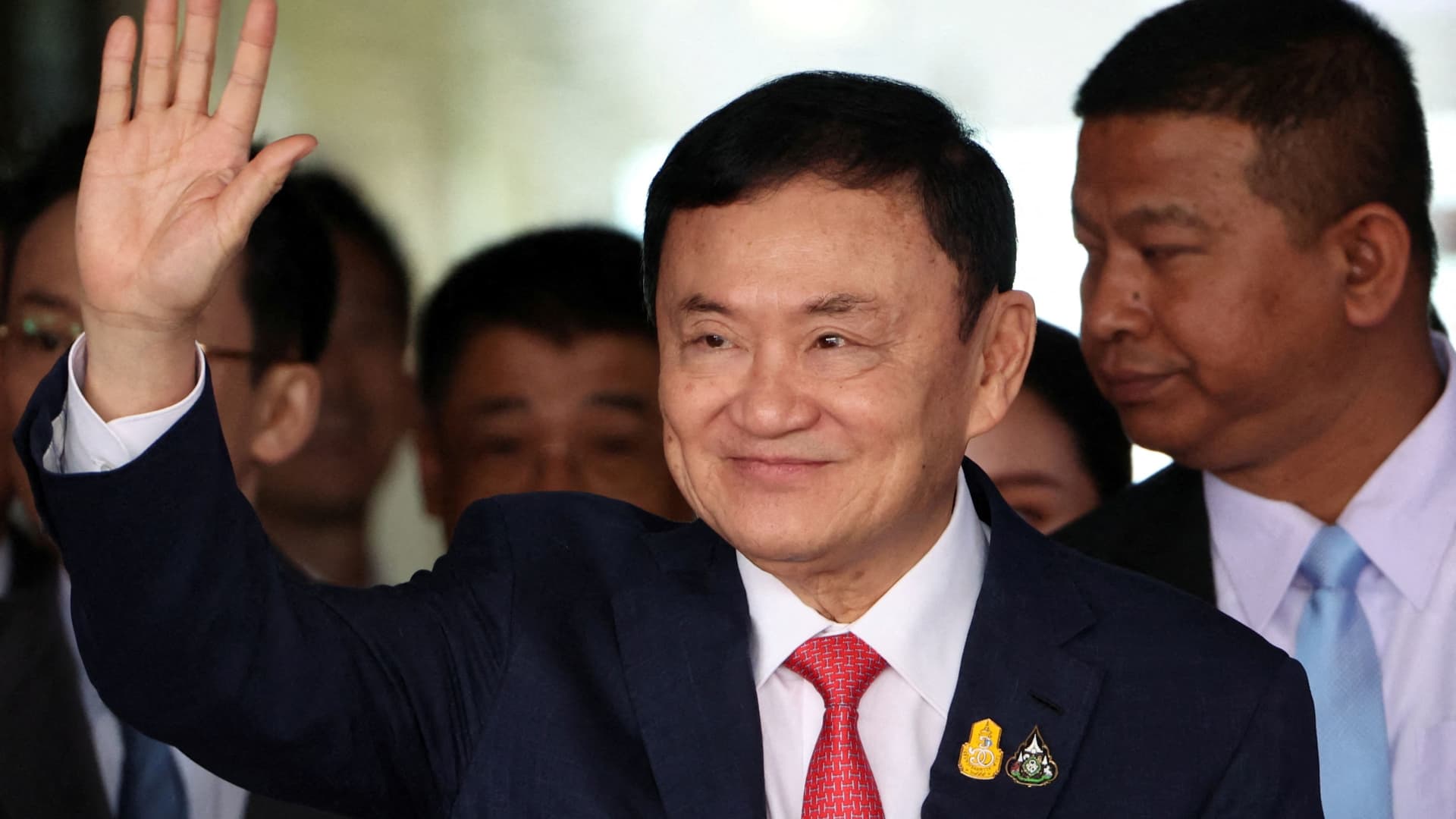Former Thai Prime Minister Thaksin Shinawatra has returned to Thailand after 15 years of self-exile, signaling a potential end to his dominant role in the country’s politics. Despite being sentenced to eight years in prison upon his return, analysts believe Thaksin will still exert influence behind the scenes as the founder and de facto leader of the Pheu Thai party. Property mogul Srettha Thavisin from the Pheu Thai party has been elected as the new prime minister, leading a coalition of 11 parties. The new government plans to roll out economic policies such as a 10,000 baht handout, increasing the minimum wage, and making military service voluntary, though conservative parties may oppose some proposals.
While analysts don’t expect Thaksin to serve his full prison sentence, they predict he will receive a presidential pardon. The Move Forward Party, which won a majority in Parliament during the May election, was forced into a coalition and its leader was blocked from becoming prime minister. Thaksin’s potential release before his full sentence could lead to a more invested involvement in politics, although he may take a backseat role. Analysts anticipate that he will continue to pull the strings within the Pheu Thai party and play a significant, albeit more behind-the-scenes, role in Thai politics.
Despite not returning to office, Thaksin will remain an influential figure in Thai politics, known for his dealmaking skills. He will likely continue to work from behind the scenes, legitimizing his role in supporting the Pheu Thai party. Thaksin’s active involvement is expected, with analysts describing him as a powerful player who will call the shots from the back rather than the front. Overall, Thaksin’s return marks the potential end of an era in Thai politics, but his continued influence ensures that he will remain a central figure in the country’s political landscape.
